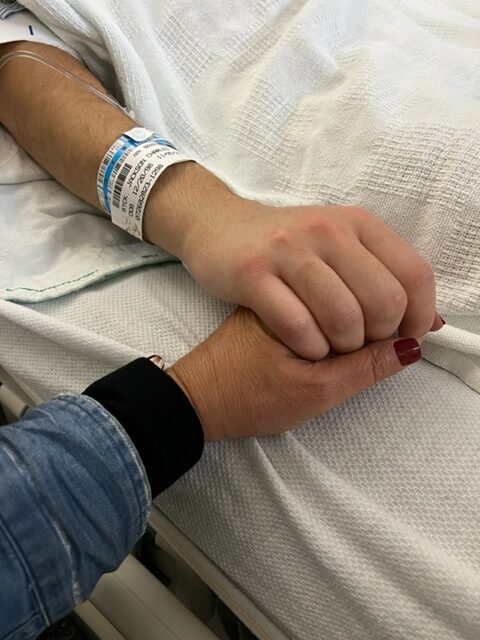The Trailblazers Who Worked with Jackson

I first met Jackson when he was a few days old but then our families moved to different parts of the country. I reconnected with Jackson when his parents told me he had been diagnosed with an aggressive and rare form of melanoma.
It just so happened that my research was focused on developing a personalized vaccine for patients with rare tumors and we realized that what we were doing could help him. Over the next 2 years, we created a vaccine for Jackson and treated him in San Diego. For every dose of the vaccine, given every 3 weeks, Jackson would come to stay with me and we would drive together to the cancer center to get his treatment. I got to know him and see that he was a wonderful young man with a great sense of integrity, empathy, and outlook on life. As it often turns out, I benefited more from the experience than the other way around. Scientifically, we discovered new techniques in our research through working with Jackson that we have already applied in other patients.
What we learned from Jackson brings us closer to curing cancer. Personally, I was so inspired by this young man who was just at the start of his adult life with so much promise facing a reality with bravery and alacrity. I will never forget that. Jackson made me a better person in the time I got to know him.Ezra Cohen, MD
Medical Oncologist, Chief, Division Of Hematology-Oncology Associate Director, Translational Science, Moores Cancer Center UCSD
We live our lives with assumptions of ongoing health because we stand on the shoulders of those who came before us.
Those heroic persons, who when faced with insurmountable odds of a cancer diagnosis, strove to serve all those who come after by taking part in developing the cures of tomorrow through the clinical trials of today, as imperfect as they are.
Jackson Byck will today and always be a North Star to that end, a cancer-free tomorrow.Michael Claus V Jensen, MD
Vice President, Seattle Children's Therapeutics, and Chief Therapeutics Officer Seattle Children’s Hospital
I first met Jackson in 2019 shortly after his primary uveal melanoma diagnosis. From the start, Jackson approached the cancer, the treatment, and life with courage, maturity, and humor. I will never forget when he was showing me all the crazy eye prosthesis choices he was considering, since a simple eye to match his own wouldn't be nearly as fun.
He participated in clinical trials both to help himself and always hoping to move the field forward and help others. Once metastatic, he acknowledged the battle, but he never let that stop him from living. He has been an inspiration and has given me a reason to never stop working towards finding a cure.Marlana Orloff, MD
Associate Professor Department of Medical Oncology Thomas Jefferson University Hospital